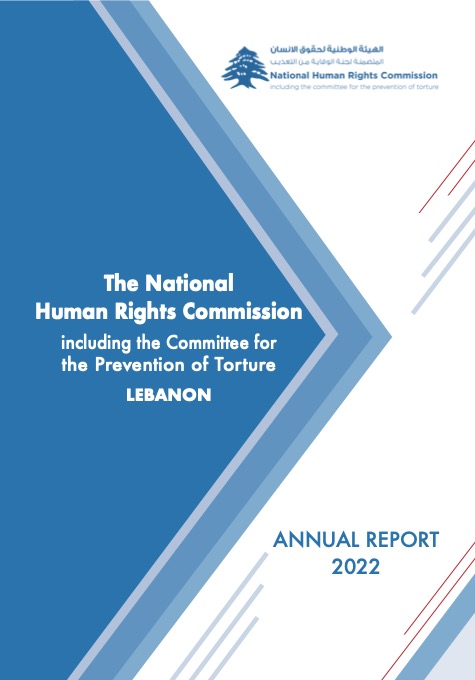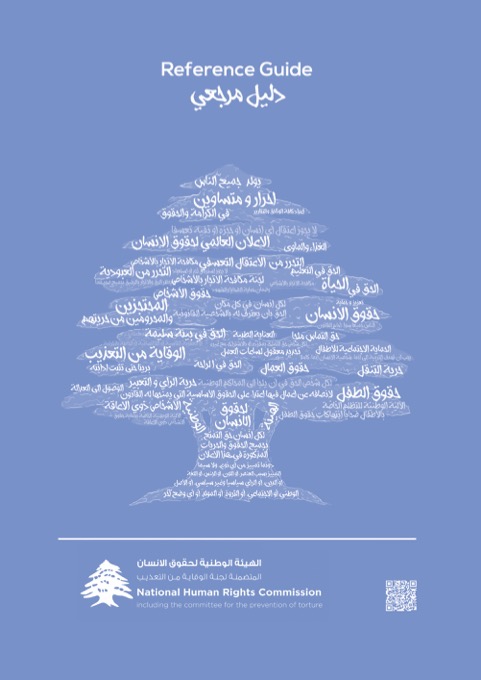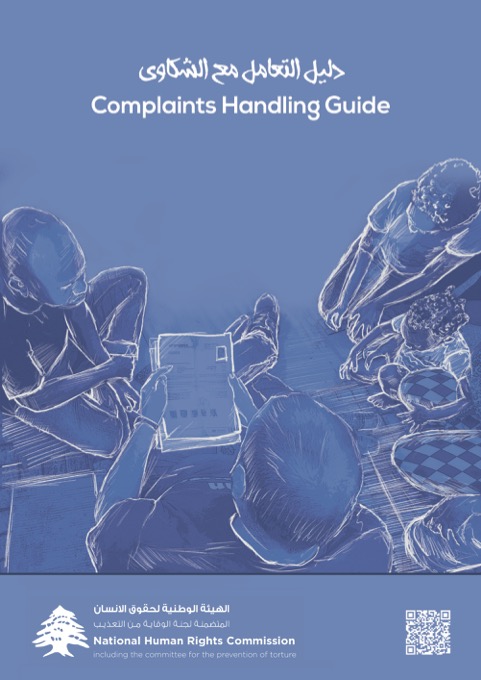هذه المقالة متاحة أيضًا بـ: العربية (Arabic)
The current report constitutes the annual report of the National Human Rights Commission that includes the Committee for the Prevention of Torture for the year 2022, pursuant to the provisions of Law No. 62 of October 27, 2016 (establishing the National Human Rights Commission, which includes the Committee for the Prevention of Torture) and its amendments2, particularly article 15, paragraph D, which stipulates that each of the Commission and the Committee, within their respective competences, shall prepare a unified report, which includes their annual programs, their achievements, and the difficulties they faced, and that the Commission shall submit to the Presidency of the Republic, the Parliament, the Presidency of the Council of Ministers, and the President of the Higher Judicial Council such unified report, which shall be published in the Official Gazette, and it shall be up to the Parliament to discuss this report. The report is careful not to include any personal or detailed data that reveals the identity of the victims or witnesses without their consent. The Commission was established to protect and promote human rights in accordance with the standards contained in the Lebanese Constitution, the Universal Declaration of Human Rights, international conventions and treaties related to human rights, and Lebanese laws consistent with these standards, in addition to performing the special tasks specified in this law. In this regard, it may communicate independently with international and local bodies concerned with human rights.
This report concludes that there are reasonable reasons to believe that the decrees regulating the Commission, which were not approved by the successive Lebanese authorities since its formation in 2018, the amendments that affected its basic law through the Budget Law for the year 2020, and the repeated attempts by the Ministries of Finance and Justice, especially during the third government of Najib Mikati, which is the seventy-seventh Lebanese Government after independence and the fourth under former President Michel Aoun, aimed, intentionally or unintentionally, to harm its independence by proposing amendments to its internal and financial system, obstructing the approval of the contractors’ and staffing system, and refusing to issue a decree allocating one of the abandoned and closed public buildings in its favor, which constitutes a flagrant violation of International Human Rights Law, binding international conventions and the Lebanese laws in force, and a violation of the Paris Principles that sponsor the establishment of independent National Human Rights Commissions, which reflects the authority’s failure to respond to successive disasters, especially in terms of respecting human rights in Lebanon. Activating the role of the National Human Rights Commission, which includes the Committee for the Prevention of Torture, is more important than ever.
This report was submitted after the deadline to include the latest developments. The preparation of this draft report was graciously supported by the United Nations Development Program, and the project “ACT Lebanon – Advance Counter Terrorism for Lebanon Security” funded by the European Union and implemented by the International and Ibero-American Foundation for Administration and Public Policies (FIIAPP) and CIVIPOL.
In the light of the available data, this report examines the reality of human rights in terms of mechanisms for monitoring, protecting, and promoting human rights in Lebanon, the disruption of the judiciary and its repercussions, the disruption of security and its repercussions, discrimination against the most vulnerable groups, and the collapse of economic, social and cultural systems.
The report concludes that the Lebanese authorities have failed to address economic and social rights, which have been affected by the economic and monetary crisis in the country, leaving the population without adequate access to health care, water, and other services. Impunity continued to protect perpetrators of torture and other crimes. Defamation laws have been used against critics of the authorities. Migrant workers, especially domestic workers, are still subject to abuse under the discriminatory sponsorship system. Women continue to face discrimination in law and practice. The authorities have intensified hate speech and deported Syrian refugees to Syria, despite the risks of flagrant human rights violations there. The authorities have banned annual activities set up by organizations advocating for people of diverse sexual orientations and gender identities.
The report also documents the activities carried out by the Commission and the Committee following the protests of October 17, 2019, and in response to the repercussions of the Beirut Port blast in August 2020 and to the outbreak of the Covid 19, and the activities carried out by the Commission within the framework of interaction with the ten bodies established under the treaties and the bodies established under the Charter of the United Nations, especially the Human Rights Council, the Special Procedures and the Universal Periodic Review, and with the international organizations and national, regional and international civil society organizations and official authorities, and the activities that were carried out by the Committee for the purpose of preventing torture.



